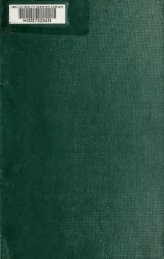The Health bulletin [serial] - University of North Carolina at Chapel Hill
The Health bulletin [serial] - University of North Carolina at Chapel Hill
The Health bulletin [serial] - University of North Carolina at Chapel Hill
Create successful ePaper yourself
Turn your PDF publications into a flip-book with our unique Google optimized e-Paper software.
:<br />
:<br />
:<br />
24 <strong>The</strong> <strong>Health</strong> Bulletin September, 1927<br />
riidcr (l<strong>at</strong>o <strong>of</strong> June 1 I >v. Felix J.<br />
Underwood, St<strong>at</strong>e <strong>Health</strong> Otticer <strong>of</strong><br />
Mississippi, wrote to Dr. Laiigliiughouse<br />
iis follows<br />
•Words fail me in expressing to<br />
j-on our appreci<strong>at</strong>ion <strong>of</strong> the splendid<br />
assistance rendered thronyh your well<br />
ti-ained sanitary inspectors. I doubt<br />
if there is a St<strong>at</strong>e in the Union th<strong>at</strong><br />
has sanitary men who equal yours.<br />
•'Very truly yours,<br />
"Fexix J. Underwood, M.D."<br />
Under d<strong>at</strong>e <strong>of</strong> June 4 Dr. C. W. Garrison,<br />
St<strong>at</strong>e <strong>Health</strong> Officer <strong>of</strong> Arkansas,<br />
wrote the following letter with<br />
reference to Drs. Taylor and Carley,<br />
and Sanitary Engineer Weir<br />
"Arkansas is indeed fortun<strong>at</strong>e in<br />
your selection <strong>of</strong> men to serve lis.<br />
Doctors H. A. Taylor and Paul S. Carley<br />
and Sanitary Engineer W. H. Weir<br />
have been with us for some time.<br />
Each <strong>of</strong> them has rendered a service<br />
th<strong>at</strong> has been invaluable, and I hardly<br />
know wh<strong>at</strong> might have come as a result<br />
<strong>of</strong> the flood in several communities<br />
had they not been there to organize<br />
the work and comb<strong>at</strong> the diseases<br />
th<strong>at</strong> usually follow- in the w^ake <strong>of</strong> disaster.<br />
"Dr. Dees and Mr. Quint Smith,<br />
while not directly from your department,<br />
have come I know largely<br />
through your solicit<strong>at</strong>ion. My contact<br />
with these men assures me th<strong>at</strong><br />
the communities to which they are assigned<br />
will be assured <strong>of</strong> protection.<br />
"I congr<strong>at</strong>ul<strong>at</strong>e you on having such<br />
a wonderful staff <strong>of</strong> workers, and I<br />
feel particularly favored in being the<br />
recipient <strong>of</strong> their services."<br />
Dr. C. AV. Armstrong was assigned<br />
to duty in northeastern Louisiana, directing<br />
a force <strong>of</strong> twenty-five workers,<br />
including nurses, engineers, and sanitary<br />
inspectors. Dr. Armstrong's work<br />
covered a total <strong>of</strong> forty-six towns and<br />
eleven parishes. In his report to the<br />
Louisiana St<strong>at</strong>e Board <strong>of</strong> <strong>Health</strong> <strong>at</strong><br />
the conclusion <strong>of</strong> the work. Dr. Armstrong<br />
says<br />
"<strong>The</strong>re has <strong>at</strong> all times been perfect<br />
harmony and the most cordial cooper<strong>at</strong>ion<br />
between all members <strong>of</strong> the<br />
nnit. <strong>The</strong> men have worked untiringly<br />
with never a thought <strong>of</strong> complaint.<br />
<strong>The</strong> permanent employees <strong>of</strong><br />
the Louisiana St<strong>at</strong>e Board <strong>of</strong> <strong>Health</strong><br />
who were absorbed into the unit have<br />
given us the finest possible cooper<strong>at</strong>ion,<br />
and have shown us every cour<br />
tesy. We cannot speak too highly <strong>of</strong><br />
your own Louisiana men who havr<br />
been with us in this section. Any<br />
St<strong>at</strong>e should feel itself fortun<strong>at</strong>e in<br />
having the services <strong>of</strong> these men."<br />
In conclusion the class <strong>of</strong> service<br />
rendered by these men is indic<strong>at</strong>ed in<br />
the fact th<strong>at</strong> after the subsidence <strong>of</strong><br />
the acute dangers, while the flood was<br />
<strong>at</strong> its crest, the Intern<strong>at</strong>ional <strong>Health</strong><br />
Board deemed it necessary to assist<br />
financially and otherwise in the rehabilit<strong>at</strong>ion<br />
work <strong>of</strong> the public health<br />
departments in the area involved. <strong>The</strong><br />
aforementioned board agrees with Secretary<br />
Herbert Hoover, who himself<br />
spent some time in the flood district,<br />
th<strong>at</strong> intensive sanitary work will be<br />
necessary over a period <strong>of</strong> <strong>at</strong> least<br />
eighteen months before the rehabilit<strong>at</strong>ed<br />
popul<strong>at</strong>ion can be restored to<br />
safe and normal community life. To<br />
assist in making such work effective<br />
on a system<strong>at</strong>ic scale the Intern<strong>at</strong>ional<br />
<strong>Health</strong> Board took the lead in establishing<br />
a school <strong>of</strong> sanitary inspectors<br />
to take intensive training for a short<br />
while before being disp<strong>at</strong>ched to individual<br />
districts throughout the entire<br />
flood area. As chief instructor <strong>of</strong> this<br />
school <strong>of</strong> sanitary inspectors the Intern<strong>at</strong>ional<br />
<strong>Health</strong> Board requested<br />
the services <strong>of</strong> Mr. John A. McLeo


![The Health bulletin [serial] - University of North Carolina at Chapel Hill](https://img.yumpu.com/33495252/286/500x640/the-health-bulletin-serial-university-of-north-carolina-at-chapel-hill.jpg)
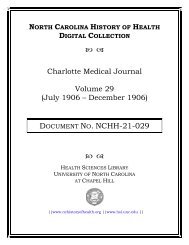
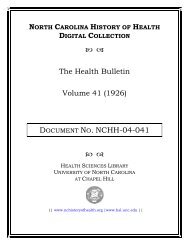
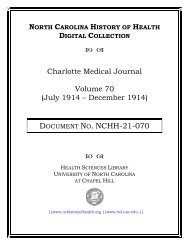
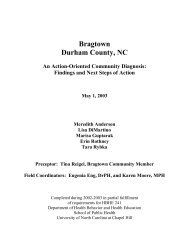
![Bulletin of the North Carolina Board of Health [serial] - University of ...](https://img.yumpu.com/48032016/1/153x260/bulletin-of-the-north-carolina-board-of-health-serial-university-of-.jpg?quality=85)
![The Health bulletin [serial] - University of North Carolina at Chapel Hill](https://img.yumpu.com/47603625/1/169x260/the-health-bulletin-serial-university-of-north-carolina-at-chapel-hill.jpg?quality=85)
![The Health bulletin [serial] - University of North Carolina at Chapel Hill](https://img.yumpu.com/47242858/1/169x260/the-health-bulletin-serial-university-of-north-carolina-at-chapel-hill.jpg?quality=85)
![The Health bulletin [serial] - University of North Carolina at Chapel Hill](https://img.yumpu.com/43204263/1/172x260/the-health-bulletin-serial-university-of-north-carolina-at-chapel-hill.jpg?quality=85)
![The Health bulletin [serial] - University of North Carolina at Chapel Hill](https://img.yumpu.com/41981074/1/163x260/the-health-bulletin-serial-university-of-north-carolina-at-chapel-hill.jpg?quality=85)
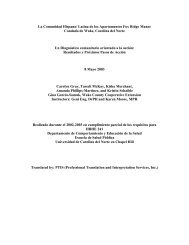
![The Health bulletin [serial] - University of North Carolina at Chapel Hill](https://img.yumpu.com/40912928/1/164x260/the-health-bulletin-serial-university-of-north-carolina-at-chapel-hill.jpg?quality=85)
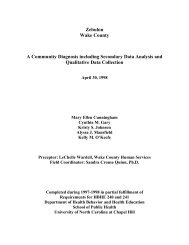
![The Health bulletin [serial] - University of North Carolina at Chapel Hill](https://img.yumpu.com/35643061/1/167x260/the-health-bulletin-serial-university-of-north-carolina-at-chapel-hill.jpg?quality=85)
![Biennial report of the North Carolina State Board of Health [serial]](https://img.yumpu.com/34024350/1/166x260/biennial-report-of-the-north-carolina-state-board-of-health-serial.jpg?quality=85)
